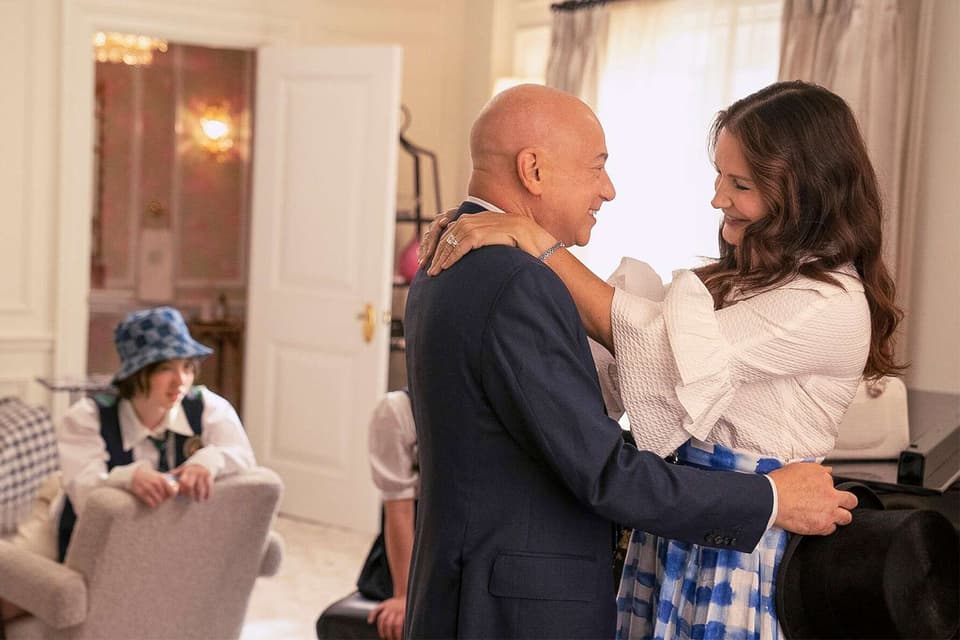
On a recent 10pm train home from a spicy, Szechuan dinner in Bloomsbury, I called up my best friend who lives out of town. A romantic affair had blown up and I was gagging to dissect it. “That is just classic boy,” she told me, after I loudly regaled the drama, revelling over the tonal specificities of an exchange that had particularly irked me.
Hearing her words felt good. It was a dance we had done through most of our twenties (I’m now 28, and this time around have been single for a year). Someone in our friendship group would relay their version of some infuriating and/or disturbing series of events – a wild love bomber, an unruly gaslighter, a pushy sexual partner – and the rest of us would roll our eyes with predictable fury. “That is soooo male.” “That is such a boy thing to say.” “That is such a man response.”
Of course, our gender-essentialist readings are somewhat tongue-in-cheek. I’m talking about the social constructs of gender rather than individuals, I am being hyperbolic with my language, and so on. But there is something irresistibly satisfying about having these neat – albeit exaggerated and reductive – rationalisations for the poor behaviour that makes us feel slighted. Of course he’s still into you. He’s just being a man child!

Does real love exist in 2025? Organic meetings like the one in Too Much seem like a thing of the past
Ana Blumenkron/Netflix
Then, last month, a more light-hearted TikTok trend saw women mocking their boyfriends’ ‘inadequate’ understanding of good boyfriend behaviour — proclaiming that things like buying her flowers, funding her manicures and making her breakfast in bed is not “princess treatment”, but “the bare minimum”.
Across the UK, more and more adults are living alone (one in eight adults were in this living arrangement in 2023, according to ONS data). The number of Brits who have never married or been in a civil partnership is also on the rise, with the highest proportion of singletons in London. And yet while data indicates that the Big Smoke is not short of bachelors, women who date men in the city tell a different story.
“The desert is parched,” Zing Tsjeng writes in a Vogue article, Where are all the eligible men?, after re-entering the singles market following a 13-year relationship. Meanwhile, in The Independent, Helen Coffey ponders whether women have become “too eligible to date” – unpacking how women outstripping men in higher education could be ruining romance.
Do single women dating men in London really have the worse end of the stick? Or are things just as hard — or worse — for men dating women? I wanted to hear it from men themselves — so I turned to my single male friends, friends of friends and men I befriended on Reddit to find out.
A longstanding trope about heterosexual dating (that pulsates through virtually every Nineties rom com) is that young women are desperate for a relationship and young men are desperately trying to run away from one. But is this really true?
“I definitely want to be in a relationship,” Kyle,* a 30-year-old who works in product management who has been “on and off single” for 10 years, tells me over the phone. While he’s had a handful of six or seven month romances, they’ve ultimately fizzled.
These days he’s dating with intention, but finding love in London has been tricky.
“I haven’t really met anyone organically,” he says, explaining that unless he’s at an explicitly singles-only event, he’d never approach a girl in person. “I worry about making other people uncomfortable,” he says — something he puts down to a combination of a fear of public rejection and watching other men approach women in a way that clearly makes them feel unsettled.
I haven’t really met anyone organically. I worry about making other people uncomfortable
Kyle, 30
Speed dating events and singles mixers have resurfaced in cities around the world in recent years – in part a reaction to dating app fatigue. Yet these events are notoriously over-attended by women. Recently the female journalist Moya Crockett described how such an event at “an artsy social club in Peckham” had so few male attendees that “the organisers were running out onto the street to try and recruit random men to come in and make up the numbers.”
Kyle, however, has frequented a few singles events (a Thursday mixer and a speed dating event at Dinner for One Hundred), but he hasn’t enjoyed them. “It can feel a bit like a meat factory,” he says, “Everyone’s competing with each other. It can be a bit unpleasant.”
That feeling of competitiveness — of numerically ranking one’s physical attributes and accolades against another — is of course only amplified on dating apps. “I think it skews our perception of the general male or female population,” Michael, a 31-year-old bachelor who works in jewellery — and is not on the apps – told me. “On a larger scale, I think that plays with our mental health in terms of how we view our own bodies and face.”
Michael is 5’10, and while he goes to the gym and does martial arts, he says he still doesn’t have the “peak male physique” that rich male influencers flaunt on TikTok and Youtube.
Tinder’s new height filter has only added fuel to the fire — encouraging users to think about potential partners in quantifiable terms. One of Michael’s friends is 5’6, but put that he was 5’8 on the apps. “Nobody would look at him otherwise.”

How many Harrys have they turned away? Evan Handler recently asked
HBO
Are there really ‘no eligible men,’ or are women overlooking men who are under 6’? As Even Handler (who plays Harry in Sex and the City) put it in a recent TODAY interview: “A lot of women come up to me and say, ‘I’m looking for my Harry.’ I always wonder, ‘How many Harrys have they turned away? And how many will you still?’”
While men tend to outnumber women on dating apps, the IRL heterosexual market tells a different story. Women aged 25 to 35 outnumber men in London by seven per cent — with particularly stark disparities in boroughs such as Wandsworth, Lambeth and Hackney (according to data published in 2022).
As well as this, research indicates that settling down may be particularly hard for women who live in London — that’s on top of the pre-existing pressures of the ‘biological clock’. According to data scientist and demographer Stephen J Shaw, 32 per cent of British women aged 25 to 35 living outside of London and the south-east of England said the main barrier to starting a family was finding a suitable partner. That figure rose to 47 per cent in the capital.
Indeed, some single men I spoke with felt overwhelmed by the feeling of romantic choice. “I’ve found it hard to know when to decide that this is the right person that I want to stay with,” Kyle explains. Even though he wants a relationship, he said it’s often him who ends things. Then he goes back on the apps. “There’s no incentive to stick with someone,” he says.
I’m just kind of window shopping, which is kind of gross and sad
Martin, 28
Martin, a 28-year-old who has been single for about a year, also felt like the apps were impacting his ability to invest in someone. “I have a whole list of girls at my fingertips that I could ask for a drink” he told me. “When I’m using [Hinge]… I’m not even necessarily using it with the idea of, like, okay, I’m gonna get a date for later this week. I’m just kind of window shopping,” he says, “which is kind of gross and sad.”
“You might go on a date with someone. It’s okay, and you think: ‘all right, well, there’s no point in pursuing someone who is just okay,’” he says, and thinks this gives him the “opportunity to just be like, ‘Nah, next.’”
“You’ve just got to take the hit”
While Martin is having no issue meeting women on Hinge, that’s not to say his dating life is care-free. With £7 pints and £50 small plate dinners becoming the norm, romance in the big-city is eye-wateringly expensive — particularly now he’s unemployed. Then, there’s the added pressure of having to pick up the bill.
According to one Elite Singles survey of 300,000 singles, 63 per cent of men thought that they should pay the bill on a first date, while just 7 per cent wanted to go Dutch. Those social expectations put a sizable pressure on young men in the UK— particularly considering a third (33.7 per cent) of 20 to 34 year old men live with their parents, compared with less than a quarter (22.1 per cent) of women.
I have a niggling feeling in the back of my head that I’ll come across as cheap or broke if I don’t pay for a first date
Martin, 28
“You’ve just got to take the hit,” says Arthur, a 26-year-old who moved back into his family home after a break up in January. “There’s been times where it’s like a 200 quid night on a first date on just a s***load of cocktails.”
Those in favour of men wining and dining female lovers sometimes cite the gender wage gap — the fact that women earn £631 less than men each month, taking home about £7,572 less over a year. However, women are actually more likely than men to want to split the bill. According to the Elite Singles survey, less than half (46 per cent) of women think that men should pay for a first date, and 18 per cent would rather split it.
Still, that doesn’t mean men don’t feel the pressure. “I have that niggling feeling in the back of my head that I don’t want to come across as cheap or as broke,” Martin says.
Chatting to London’s eligible bachelors, I was excited to grill them about which gendered-stereotypes about dating were true in their own lives. Had they been breadcrumbed? Ghosted? Love bombed?
One 27-year-old singleton, who works in social media marketing, admitted that he’d once been guilty of love bombing, laying it on thick then “suddenly pulling away”— introducing a girl to his mum and inviting her to a weekend away for his friend’s birthday, even though his heart wasn’t in it. He said he’d felt pressure to invite her. “I will never do it again,” he said. “I learnt my lesson.”
Everyone had their own tales of rejection, insecurity and humiliation
Several men did say that they found it off-putting when it seemed like a woman was “desperate for a relationship” and that they felt like they were more able to emotionally detach from sex. But none of the men I spoke with felt like women were more likely to want commitment than men, and several of them had been ghosted after sex, too. Everyone had their own tales of rejection, insecurity and humiliation.
Of course dating does not exist in a vacuum and our romantic lives are impacted by the gender roles we’ve been taught. But as much as I get a satisfying rush from cackling with my female friends about ‘classic male behaviour,’ I know deep down that it’s not productive.
As social media algorithms increasingly drive young men and boys into the misogynistic manosphere, I think we could all benefit from probing the heterosexual cultural script — and what aspects of it are making us miserable. Romance is raw and hard and vulnerable for everyone. We should be open with each other about the aspects of intimacy that we find hard.
